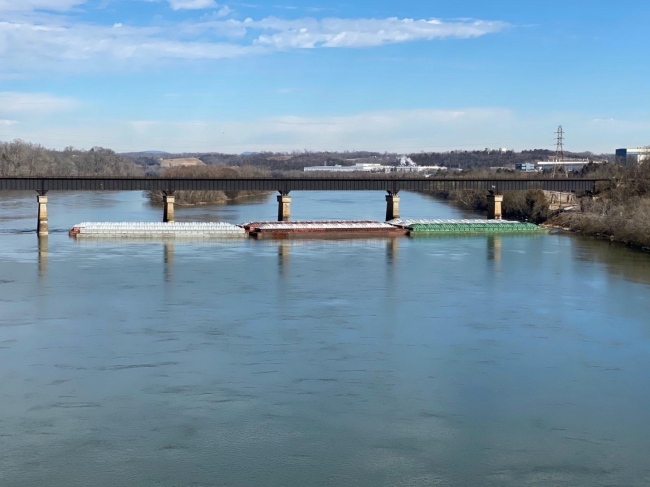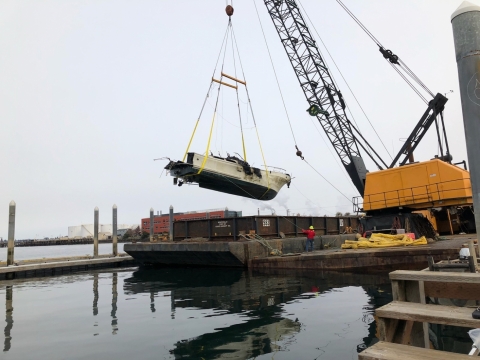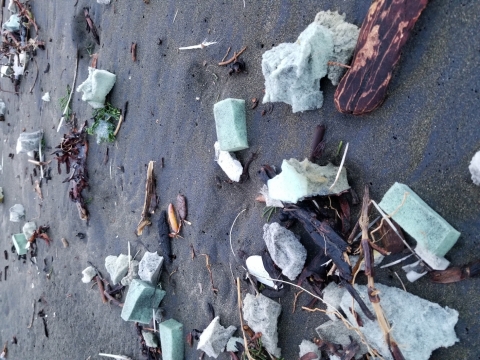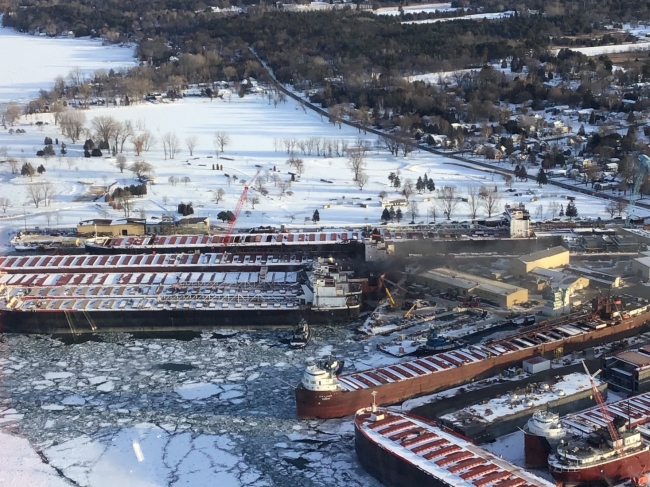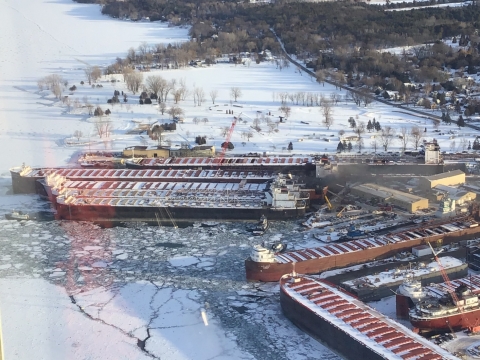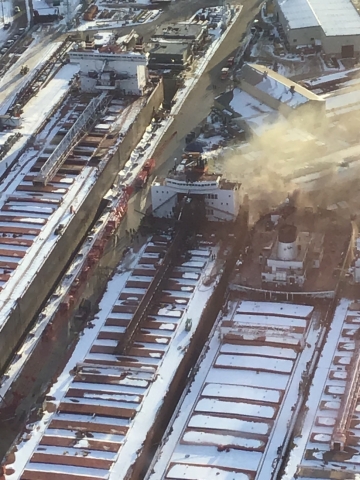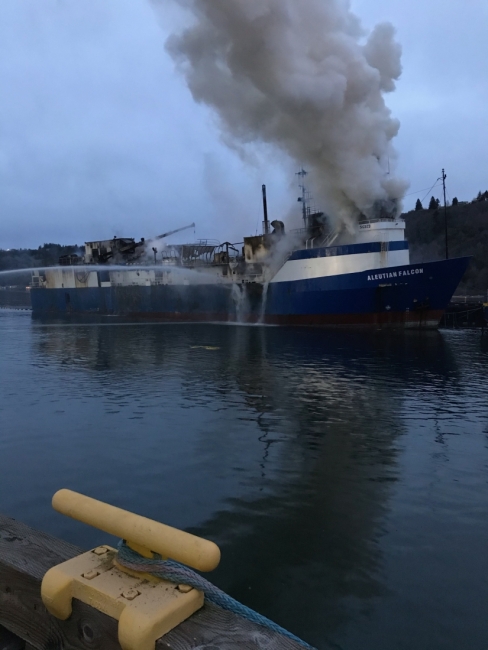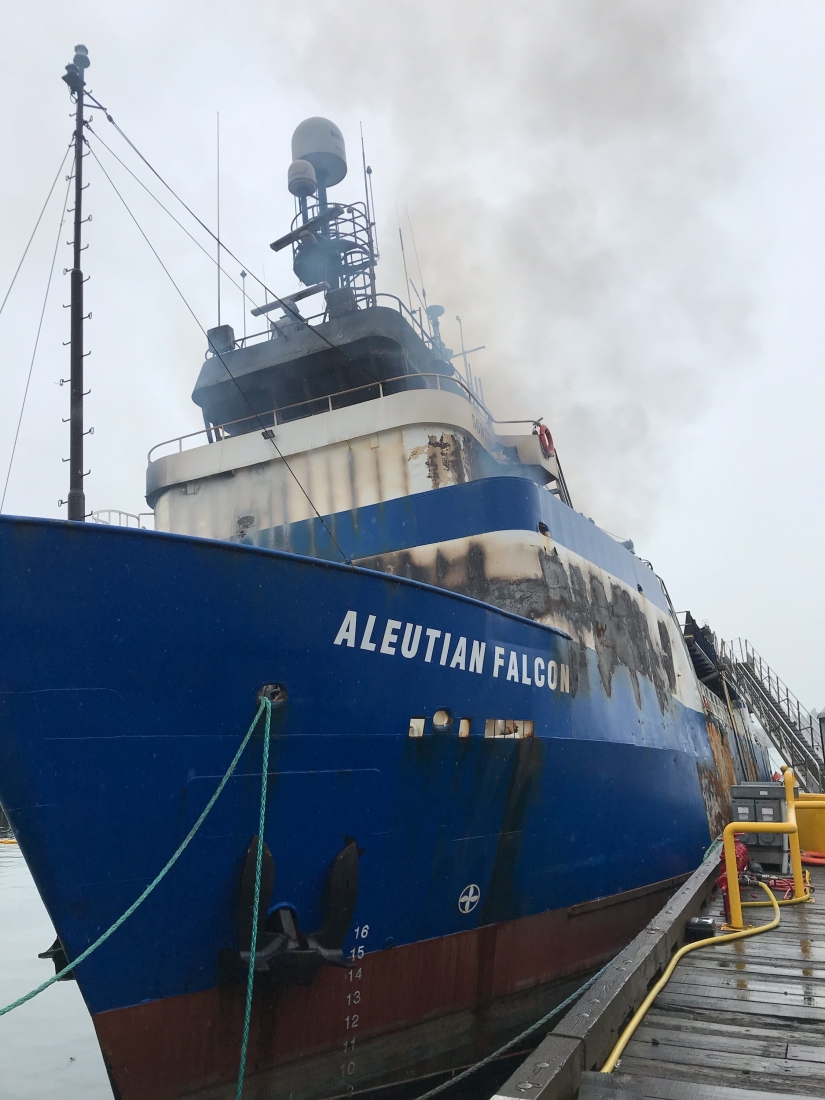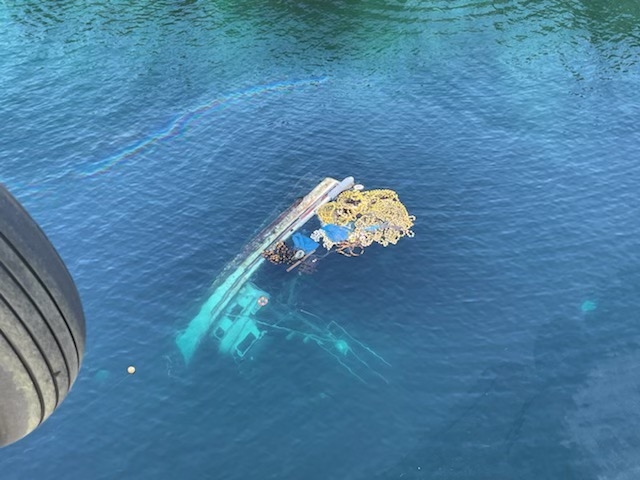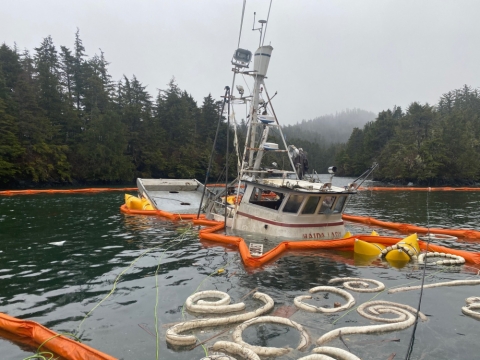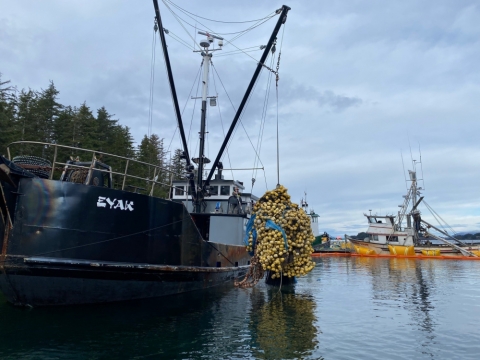Every month our Emergency Response Division provides scientific expertise and services to the U.S. Coast Guard on everything from running oil spill trajectories to model where the spill may spread, to possible effects on wildlife and fisheries and estimates on how long the oil may stay in the environment.
This month OR&R responded to 19 incidents, including oil discharges, grounded vessels, and other pollution-related incidents.
Here are some of February's notable incidents:
Vessel Fire in Marina in Sturgeon Bay, Wisconsin
On Feb. 1, a vessel fire reportedly broke out in a marina in Sturgeon Bay, Wisconsin. The U.S. Coast Guard requested NOAA provide a trajectory for a potential release of 70,000 gallons of light diesel and potential impact to an ice-covered bay. The fire was put out later that day and a dewatering plan was developed.
As of Feb. 26, lightering of the vessel was complete. The investigation into the cause of the incident is pending.
Vessel Fire near Tacoma, Washington
On Feb. 18, a vessel fire reportedly broke out on a fishing vessel moored on the Hylebos Waterway in Tacoma, Washington. The F/V Aleutian Falcon, owned by Trident Seafoods, was carrying 107,000 gallons of diesel fuel and approximately 100 pounds of ammonia.
The fire department went on scene and a pollution boom was placed around the vessel.
As of March 1, 48,500 gallons of diesel had been removed from the vessel’s fuel tanks. The ammonia on board was also removed, and controls were put in place to prevent the release of any residual ammonia containing lubricating oil. The bilge water, waste oils, and other miscellaneous hazardous material will be removed at a later date before the vessel is towed for scrapping.
Fishing Vessel Capsizes Near Cobb Island in Sitka Sound, Alaska
On Feb. 26, a fishing vessel reportedly capsized near Cobb Island in Sitka Sound, Alaska. The 52-foot fiberglass-hulled vessel, FV Haida Lady, had approximately 1,500 gallons of diesel on board at the time of the incident. A sheen was observed during an overflight. The Coast Guard requested NOAA provided trajectory and fate analysis, weather forecast, and a possible Endangered Species Act consultation.
The vessel was raised with lift bags and dewatering pumps and tied off to shore. About 1,55- gallons of diesel fuel and oily water mixture were removed from the vessel’s fuel tanks. An additional 275 gallons of oil products were recovered from the water with the use of absorbents, which included 72 sections of absorbent boom and 1,000 feet of harbor boom was deployed and recovered on-scene.
In a press release on March 4, the Coast Guard stated that the clean-up operations were complete.
Here is the complete list of last month’s incidents, click on the links to find out more:
- M/V Roger Blough Vessel Fire
- Mystery Spill
- Styrofoam debris
- FV Seabrook Discharge
- Barge Shauna Kay
- Chevron Pipeline Spill
- S2 Energy MP 21 Spill
- Foss Harbor Marina Fire
- F/V Terry F
- Orphan Drum, Warrenton Jetty Lagoon
- F/V Aleutian Falcon
- Wales School Fuel Spill
- F/V Coastal Reign
- ITV BEARCAT MM 591 Loudon, TN
- Vegetable Oil Release, Caret, VA
- Disabled S/V Plan B Adrift
- FV Haida Lady
- Bulk grain cargo barges MS River
- Right Whale Carcass Trajectory, South Carolina

